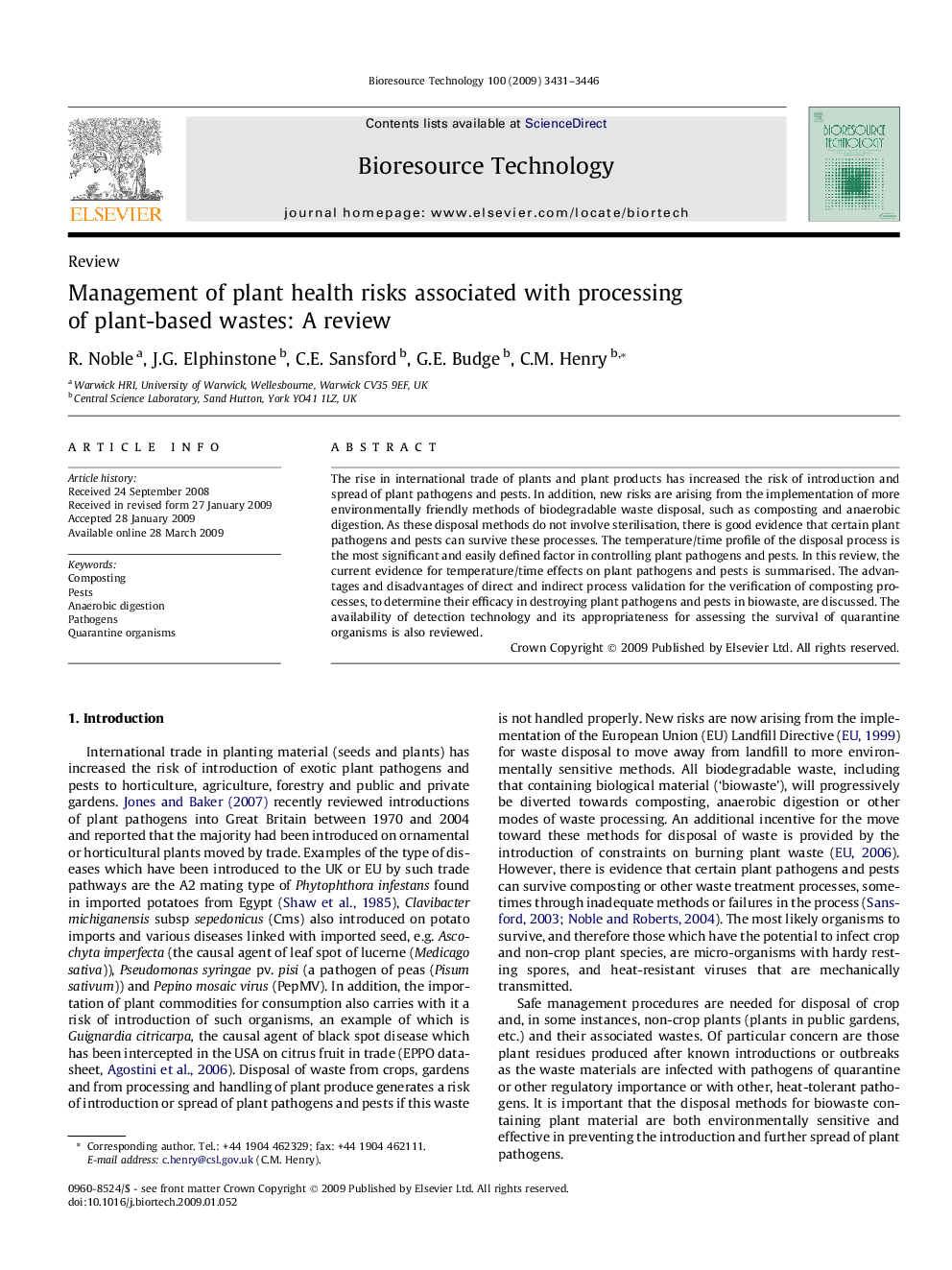| Article ID | Journal | Published Year | Pages | File Type |
|---|---|---|---|---|
| 683589 | Bioresource Technology | 2009 | 16 Pages |
The rise in international trade of plants and plant products has increased the risk of introduction and spread of plant pathogens and pests. In addition, new risks are arising from the implementation of more environmentally friendly methods of biodegradable waste disposal, such as composting and anaerobic digestion. As these disposal methods do not involve sterilisation, there is good evidence that certain plant pathogens and pests can survive these processes. The temperature/time profile of the disposal process is the most significant and easily defined factor in controlling plant pathogens and pests. In this review, the current evidence for temperature/time effects on plant pathogens and pests is summarised. The advantages and disadvantages of direct and indirect process validation for the verification of composting processes, to determine their efficacy in destroying plant pathogens and pests in biowaste, are discussed. The availability of detection technology and its appropriateness for assessing the survival of quarantine organisms is also reviewed.
